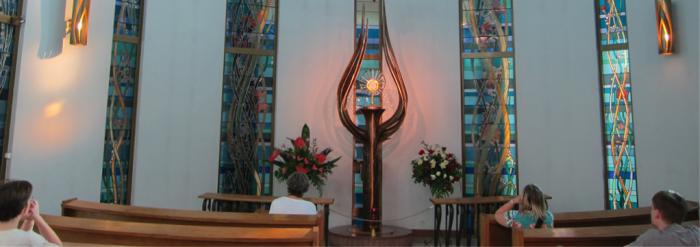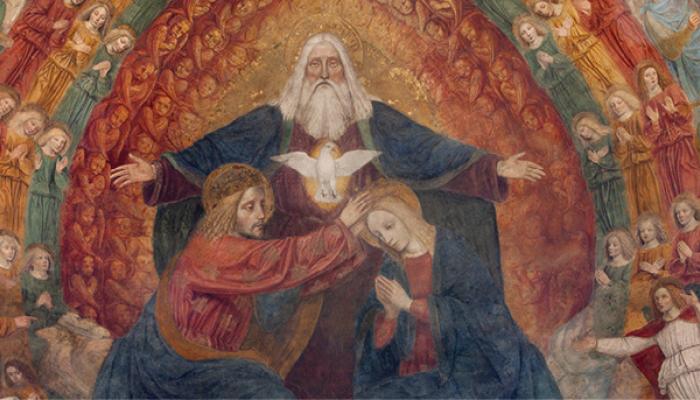
3.14 Come trascorro il tempo dell’adorazione?
Durante l’adorazione l’Ostia – che è il Corpo di Gesù – è messa in un contenitore magnificamente decorato (noto come ‘ostensorio’). Gesù è così visibile a tutti e può essere adorato. Sulla terra, non possiamo giungere più vicini a Dio di così.
Durante l’adorazione non devi fare molto. La forza dell’adorazione sta precisamente nel non far nulla per un periodo di tempo. Nel silenzio dell’adorazione, puoi riflettere profondamente su Gesù con tutto il tuo cuore. Stando con Gesù in questo modo, mostriamo che non possiamo vivere senza di lui.
What kind of worship is due to the sacrament of the Eucharist?
The worship due to the sacrament of the Eucharist, whether during the celebration of the Mass or outside it, is the worship of latria, that is, the adoration given to God alone. The Church guards with the greatest care Hosts that have been consecrated. She brings them to the sick and to other persons who find it impossible to participate at Mass. She also presents them for the solemn adoration of the faithful and she bears them in processions. The Church encourages the faithful to make frequent visits to adore the Blessed Sacrament reserved in the tabernacle. [CCCC 286]
What is the right way to honor the Lord present in the bread and wine?
Because God is truly present in the consecrated species of bread and wine, we must preserve the sacred gifts with the greatest reverence and worship our Lord and Redeemer in the Most Blessed Sacrament.
If there are consecrated hosts left over after the celebration of holy Eucharist they are kept in sacred vessels in the tabernacle. Since the Most Blessed Sacrament is present in them, the tabernacle is one of the most venerable places in every church. We genuflect before any tabernacle. Certainly, anyone who is really following Christ will recognize him in the poorest of the poor and serve him in them. But he will also find time to spend in adoration before the tabernacle and offer his love to our Eucharistic Lord. [Youcat 218]
The mystery of the Eucharist... must be experienced and lived in its integrity, both in its celebration and in the intimate converse with Jesus which takes place after receiving communion or in a prayerful moment of Eucharistic adoration apart from Mass. These are times when the Church is firmly built up and it becomes clear what she truly is: one, holy, catholic and apostolic; the people, temple and family of God; the body and bride of Christ, enlivened by the Holy Spirit; the universal sacrament of salvation and a hierarchically structured communion. [Pope John Paul II, Ecclesia de Eucharistia, n. 61]





